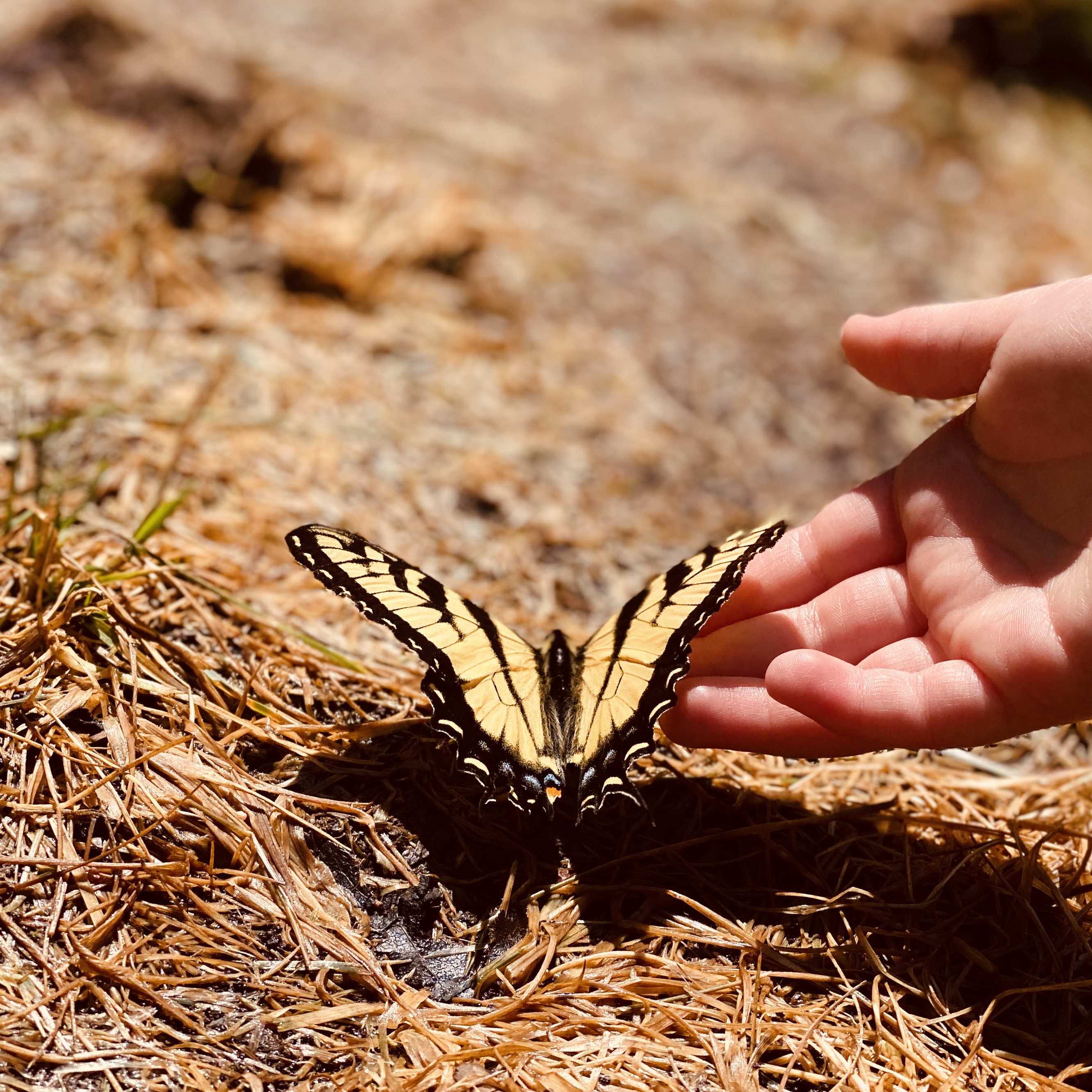It’s an age old cliché of a metaphor, the butterfly emerging from its chrysalis. What starts as a grounded, blob-like worm with legs becomes an intricately beautiful creature of flight. That such a metamorphosis takes place is nothing short of a miracle, so it’s no surprise we find reference to it everywhere.
Poems and literary works across cultures abound with mention of butterflies and their symbolism. Well-known artworks depict their striking colors and their bold and lacy patterns. Little girls are held captive by their painted, papery wings, adorning their bedrooms and clothing with images of the fairy-like sprites.
In knowing a transformation so dramatic can take place, we make a secret wish for ourselves, hoping for a similar miracle in our own lives. We want to become better, more beautiful, changed in a profound way before we die. Are we foolish to desire such a thing?
Yes and no.
From the first time we suck air into our lungs to the last time we ever let it go, we are in a state of becoming. While this implies we’re evolving into something brand new like the butterfly, I believe it’s actually quite the opposite. Instead, the miracle we wish for ourselves has already happened. It’s that we were our most beautiful the moment we got here, before we ever knew the pain of being human. The miracle isn’t a manufactured result of our becoming. Our becoming is merely a return to the miracle we were before we worked so tirelessly to protect and improve the purest, most beautiful version of ourselves.
Consider this. Assuming all of our basic needs are met, we spend the bulk of our childhood and adolescence adopting our surroundings as who we are. We believe what our parents believe. Later, we wear what our friends wear and do what they do.
Winding ourselves up inside a cloak of acceptance as a means of survival is the general rule of thumb in the beginning of life. We work extremely hard to create a protective chrysalis around ourselves so that we may shut out as much pain as possible. Some people—the infinite dwellers—create such a cozy and elaborately decorated space that they decide to stay there in the dark of denial for a lifetime, feigning connection with the outside world and never knowing the beauty they’re missing. Their process of becoming is stunted.
Others, with time, develop an understanding that we each have something untold within us that needs to be told in the open air, so they choose to spend their adult lives working to emerge back into the light, to return to the people they truly are. Revealing their unique “something” becomes their salvation and their vessel for deeper, more meaningful connection, so much so that they’re compelled to peel away the comfortable layers they so carefully donned. They are the valiant.
The valiant are deconstructing the protective facade that took most of them years to build. They’re becoming themselves, rather than creating a brand new, shinier version—the one true act of bravery, since it isn’t without risk. Leaving their chrysalises in their naked, unadulterated beauty, they’ll undoubtedly encounter judgement. There will be criticism, words intended to lasso them back into what they now only know as a self-made prison.
As a side note, the nay-sayers who spew these words are soldiers at war, but only with themselves. They aren’t content to live completely in the dark. They know just enough to desire freedom, but aren’t willing to take the risk that the valiant ones do. They have one wing out, and the other wing in, denying themselves the chance to live in the open air. So, to justify their self-inflicted captivity and quiet their inner turmoil, they spend their energy trying to convince everyone that the outside is a ridiculous place to be.
It’s only natural for us to long for miraculous transformations in our lives. We’re endlessly exposed to the pitch that “self-improvement” will pave the way and unlock all the doors for us. Movies show us the girl made over who then discovers the life of her dreams by the time the credits roll up the screen. The flaw in this model is that we don’t need to change. We aren’t caterpillars. We don’t need to become something else entirely in order to be beautiful. We need to come back to who we really are to embrace the beauty that’s always been there. We’ve always been the butterfly.
No, it isn’t foolish to expect a miracle in your life. What’s foolish is failing to recognize that you already are the miracle. You just have to peel away the layers you’ve wrapped around yourself so that you can finally take flight.


